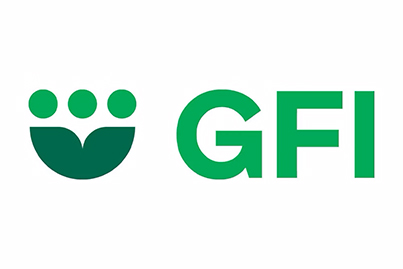Farmers who didn’t get paid after delivering crops to Global Food and Ingredients facilities will now have to file claims with the Canadian Grain Commission after the grain handler’s creditors demanded it be placed in receivership.
The Canadian Grain Commission revoked all of GFI’s licences to operate, as a measure to protect farmers and trigger an insurance program, said Remi Gosselin, head of communications with the Canadian Grain Commission.
The licences revoked included a grain dealer licence, three elevator licences held by the firm (for by facilities in Lajord, Sedley and Zealandia), and two process elevator licences, one of which was in Zealandia, the other in Bowden, Alta.
“Some of these (company failures) that have happened in the past haven’t had a big impact on individual producers, but we really won’t know in a situation like this if everyone gets paid or not,” said Todd Lewis, an R.M. of Lajord councillor and vice-president of the Canadian Federation of Agriculture. “Certainly, nobody is happy to see GFI fail now, and all of that grain was bought and sold in good faith. It’s unfortunate because producers can be out thousands and hundreds of thousands of dollars. It can make for some sleepless nights for sure.”
GFI held a $2 million bond with Intact Insurance, which now serves as the pool of funds available for farmers awaiting payment for deliveries made to GFI. Should the demands for payment exceed the $2 million covered under this bond, farmers will receive payouts on a pro-rated basis. For that reason, Gosselin said producers need to contact the Canadian Grain Commission immediately to file their claims.
“We will communicate with claimants directly as the process unfolds,” Gosselin said. “In term of the performance of our program, the claims process has generally produced good results once its completed. In the last 35 years, we have dealt with 26 company failures. The total eligible payouts from securities were $33.6 million over $40 million claimed by producers. In 19 of those failures, producers were paid 100 per cent.”
A representative from the Saskatchewan Ministry of Agriculture said the department has been in contact with the Canadian Grain Commission about the situation.
“We appreciate the hardship and stress events like this can place on producers,” the department spokesperson said. “We recommend impacted producers contact the Canadian Grain Commission as soon as possible for more information regarding potential compensation.”
Even with the protections for farmers in place when dealing with bonded companies, there are risks when accepting a delayed or deferred payment for their shipped crop.
“The best protection for producers against not getting paid is to ask for payment upon delivery and to cash those cheques promptly upon receipt,” Gosselin said. “If they don’t do that, they are essentially lending their money to a grain company.”
Lewis disputed GFI’s earlier statement claiming challenges securing enough crops to process for its financial challenges.
“There’s always willing sellers and willing buyers out there, but it’s all got to be done in a manner where both sides are happy,” Lewis said. “Obviously GFI wasn’t holding up its end of the bargain. If producers have forward contracts with them they are not going to be able to fill, hopefully they can find some new buyers. The one fortunate thing is a lot of those lentil and pea markets are fairly robust right now.”
Gosselin said GFI had indicated to us that they are unable to repay their loans, adding a court hearing to address receivership matters will take place on May 23.
Indian Head-Milestone MLA Don McMorris said farmers having an ability to market their own crops will help ensure they can find new buyers at harvest time.
“Nobody likes to see a local business close, but that’s the ebb and flow of the private market,” McMorris said.
While GFI is not operating at their facilities in Lajord now, it remains a possibility for someone else to purchase those assets and operate their own grain buying firm. However, they would first need to go through the regulatory process of securing licences to operate, and ensure they provide the security bond, or insurance program set by the Canadian Grain Commission,” Gosselin said.
“It doesn’t happen overnight, but it can happen relatively quickly once they submit their documents to us,” Gosselin said. “We have the authority to demand additional security if the initial amount set is insufficient,” Gosselin said. “We also have powers to refuse to issue a licence if the amount fixed is not provided. There are protections in place. Grain companies that operate also need to provide us with monthly liabilities reports so we can monitor the situation and ensure enough security is in place.”
Gosselin confirmed GFI had filed all necessary reports, and had paid for the insurance policy now being used to compensate producers.










